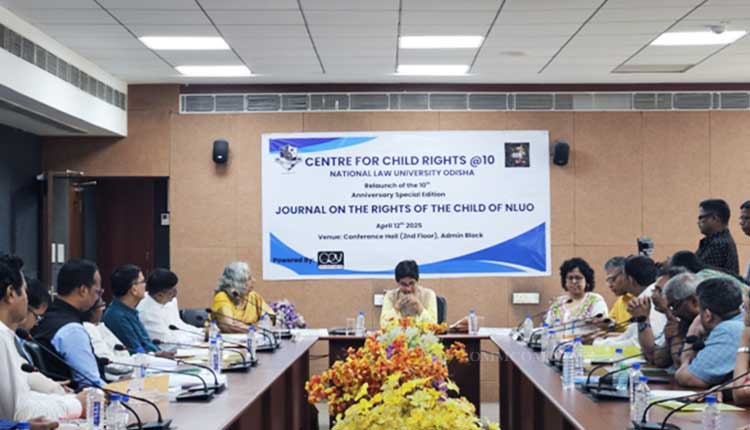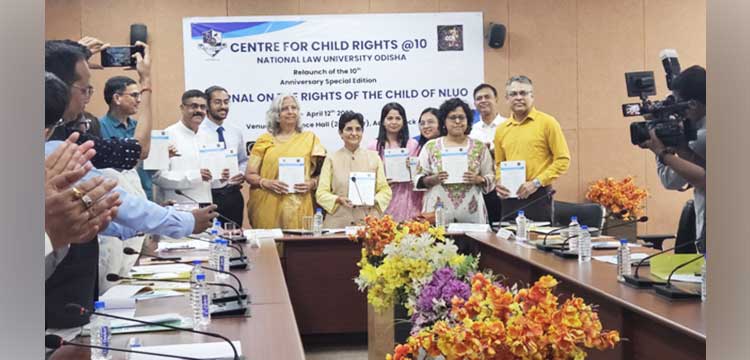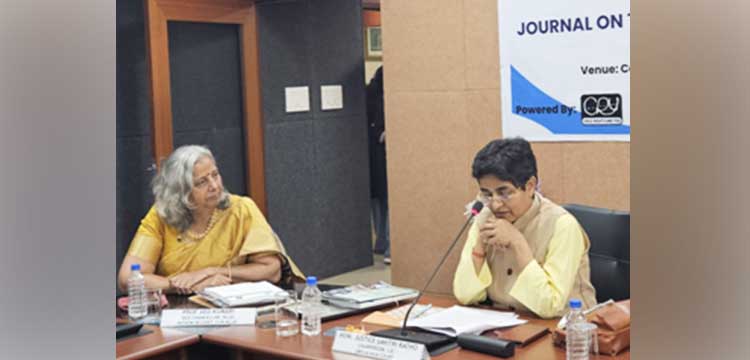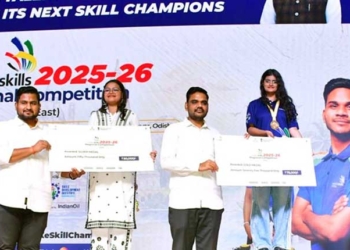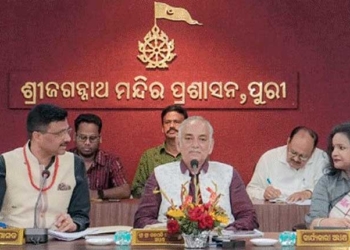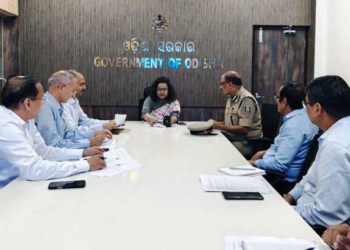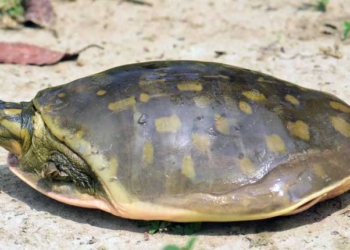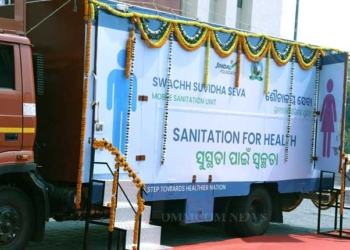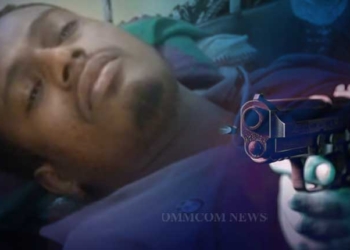Cuttack: The Journal on the Rights of the Child of NLUO, the flagship academic publication of the Centre for Child Rights (CCR) at National Law University Odisha (NLUO), was re-launched today as the institution marked a decade of committed scholarship, public service, and systemic engagement on child rights.
Orissa High Court judge Justice Savitri Ratho and Chair of its Juvenile Justice Committee opened the celebrations by reminding the audience that justice for children must be “felt in their lives — not just inscribed in our laws.”
Reflecting on the Centre’s journey since its inauguration in 2015, Justice Ratho lauded CCR as a rare academic institution that offers thought and practice leadership in child rights. “The CCR is not just complementary to the judiciary’s work—it is constitutive of the child protection ecosystem,” she said. She credited Vice Chancellor Prof Ved Kumari for charting a new institutional path in child rights law. She noted that establishing the Chief Minister’s Chair Professorship in 2023 was a watershed moment that institutionalized child rights as a rigorous legal and interdisciplinary inquiry domain.
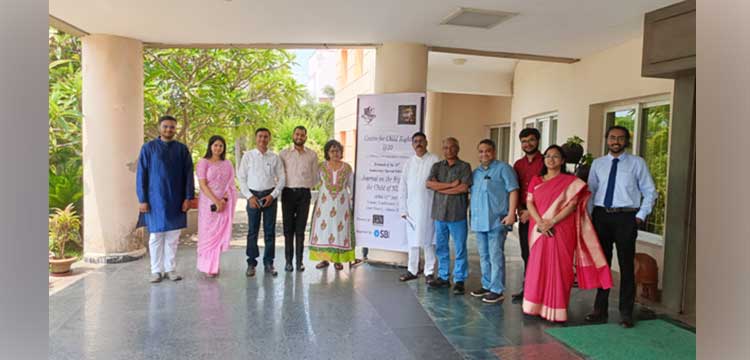 Justice Ratho also drew attention to CCR’s pedagogical innovation, especially the high student demand for the elective courses “Child Rights and Determinant Sectors” and “Food and Nutrition Justice,” noting that “legal theory, when not rooted in lived experience, risks becoming sterile.” She praised the KUTUMB initiative as a standout example of praxis, where CCR supports children’s participation and agency in shaping their communities. “Children are not passive recipients of protection—they are active rights-holders and agents of change,” she affirmed, grounding her statement in Article 12 of the UN Convention on the Rights of the Child and India’s SDG commitments.
Justice Ratho also drew attention to CCR’s pedagogical innovation, especially the high student demand for the elective courses “Child Rights and Determinant Sectors” and “Food and Nutrition Justice,” noting that “legal theory, when not rooted in lived experience, risks becoming sterile.” She praised the KUTUMB initiative as a standout example of praxis, where CCR supports children’s participation and agency in shaping their communities. “Children are not passive recipients of protection—they are active rights-holders and agents of change,” she affirmed, grounding her statement in Article 12 of the UN Convention on the Rights of the Child and India’s SDG commitments.
Sharing insights from her judicial career, Justice Ratho spoke candidly about the gulf between legislative intent and implementation, particularly in the application of the Juvenile Justice Act and POCSO Act.
“Despite progressive laws, marginalized children—tribal, Dalit, migrant, differently abled—still face structural neglect and exclusion. The pandemic only deepened these fissures,” she observed. She called for urgent reinforcement of child-sensitive procedures, trauma-informed counselling, and holistic policy frameworks that reflect the best interests of the child. She concluded with a powerful call: “Let us ensure that no child is invisible, voiceless, or without recourse.”
The 10th anniversary edition of the Journal on the Rights of the Child of NLUO features 14 original contributions from across the country, including work on juvenile bail jurisprudence, adoption law, refugee children’s rights, influencer economy ethics, and childhood nutrition. It also includes an NCRB data re-analysis and an infographic fact sheet that distils evidence into actionable insight.
Prof Biraj Swain, Chief Minister’s Chair Professor and Director of CCR, opened the program by framing CCR’s mission in unapologetically bold terms: “We are here not just to mark a date, but to recommit to our mandate—justice, equity, and dignity for every child, everywhere.”
She honoured the unwavering support of Vice Chancellor Prof Ved Kumari, whom she called “our Amazonian backbone,” and spotlighted the students whose research, outreach, and editorial work have kept the Centre vibrant and engaged.
Prof Ved Kumari, in her address, placed the focus on children in conflict with the law, reminding the audience that they are rights-bearing individuals, not societal outliers. She praised the growth of the Centre under Prof Swain’s leadership and celebrated the student community’s sustained engagement. In particular, she underscored the significance of KUTUMB in linking child rights with the broader terrain of family and community well-being. “Even after I demit office,” she said, “my interest in the Centre’s journey will remain steadfast.”
Sourav Bhattacharjee, Nutrition Specialist, UNICEF, revisited CCR’s founding partnership with UNICEF in 2014. “What was missing then was not law but a space for knowledge, research, and capacity-building,” he said. “NLU Odisha filled that gap.” Outlining a bold vision for CCR’s next chapter, he projected it as a “centre of gravity for child protection knowledge and action” across Odisha and South Asia—one that provides technical expertise, trains a new cadre of professionals, and leads research on critical issues like migration, trafficking, climate change, and online safety.
The event also saw a major institutional announcement: the formalization of a long-term partnership between CCR and Child Rights and You (CRY).
Subhendu Bhattacharjee, CRY’s Policy and Knowledge Exchange Director, announced CRY’s funding support for three grassroots-linked initiatives: student volunteerism, media legal training, and district-level legal aid centres. “This partnership is not about financials—it is about shared vision, praxis, and justice,” he said. “The cases these students take up today will become the case laws of tomorrow.”
Dr. Rashmi Rekha Baug, Co-Director of CCR and Co-Editor of the Journal, delivered the vote of thanks. She acknowledged the foundational contributions of former Vice Chancellor Prof Srikrishna Deva Rao, the steady backing of Registrar Prof Rangin P. Tripathy, and the unwavering diligence of student editor Madhulika Tripathy. She reaffirmed the Centre’s gratitude to contributors, editorial advisors, civil society partners, and the media. “May our scholarship shape future reforms, and may no child ever be beyond the reach of justice,” she said.
The celebration also unveiled the April–May 2025 edition of CCR’s bi-monthly newsletter. It acknowledged CCR’s international reach, primarily through hosting the 9th International Society for Child Indicators (ISCI) Conference in 2024, which brought together over 24 countries and established Odisha as a global child rights discourse hub.
Prof Swain offered a resonant final thought during the concluding ceremony. “Justice for children cannot remain an idea. It must become a delivered right. We are here to make that happen—not just in Odisha, not just in India, but anywhere and everywhere,” Swain concluded.




